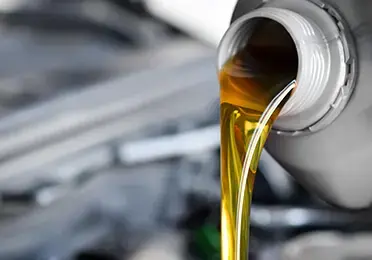Published Date - 8th Jan 2020

Mineral, synthetic, or semi-synthetic, what are engine oils composed of? Let’s take a closer look at what goes into this essential lubricant, and what role do the additives perform.
Composition of mineral, synthetic, and semi-synthetic oil: When we discuss the composition of engine oils, we need to know that every engine oil is made of base oil and additives. Since, mineral, synthetic, and semi-synthetic oils have different viscosities, roles, and uses, their compositions are different from each other. The base oil is generally either refined crude petroleum or polymers synthesized in
the laboratory.
Mineral engine oils: Mineral engine oils are natural oils derived from crude petroleum. After being extracted and conveyed to a refinery, these oils undergo several refining processes to remove impurities. Mineral oils mainly consist of hydrocarbons (oxygenated or non-oxygenated), but they may also contain traces of compounds such as sulfur or nitrogen. After mineral oils are processed, additives are added to them to improve performance.
Synthetic Engine: Synthetic engine oils can be created chemically in the laboratory, but they can also come from refined petroleum. Refining synthetic oil is a more complex process than for mineral oil, as it involves modifying the structure of the hydrocarbon molecules. The processes for obtaining the oil ensure that only the best molecules are retained. Many additives are also added in the process. Synthetic oils are considered high-end oils that deliver higher performance.
Role of Additives in Engine Oil
Additives ensure the quality, performance, and lifespan of engine oils are in place. Both mineral oils and synthetic oils have additives added to them.
Your engine oil is generally composed of 70% base oil and 30% additives. Additionally, different forms of additives play the following role that is vital for the longevity of an engine. The antioxidant additives increase the oil's ability to resist high temperatures, which results in less frequent oil changes. The remaining additives maintain the lubricity of the oil. The detergent additives prevent the formation of deposits, which keeps the engine clean and maintains its performance level throughout its lifetime.
The anti-foaming additives prevent the oil from frothing and stop the oil pump from running dry. The cold temperature additives help the engine oil to remain fluid at low temperatures, allowing the engine to start more rapidly. The anti-wear additives increase the longevity of your engine by creating a protective barrier on the surface of the parts. The extreme-pressure additives increase resistance to wear and reduce friction.
Finally, the anti-corrosion additives prevent acid, water, and air from attacking the different metal parts. This means that your engine remains younger for longer.
So, whether you drive cars, vans, trucks or bikes, utilizing the right engine oil makes all the difference in the vehicle delivering optimal performance while protecting the engine from wear and tear resulting in the prolonged life of the vehicle.

All about Engine Oil
For a healthier and longer engine life, you need to fuel it with the right engine oil. Engine oils are crucial in the smooth running of engines, reducing fuel emissions and improving engine’s performance.

5W-40: choosing the right engine oil for your car
There are two important factors to consider when comparing and choosing motor oils—how cold does it get in winter and what the manufacturer recommends for your engine.